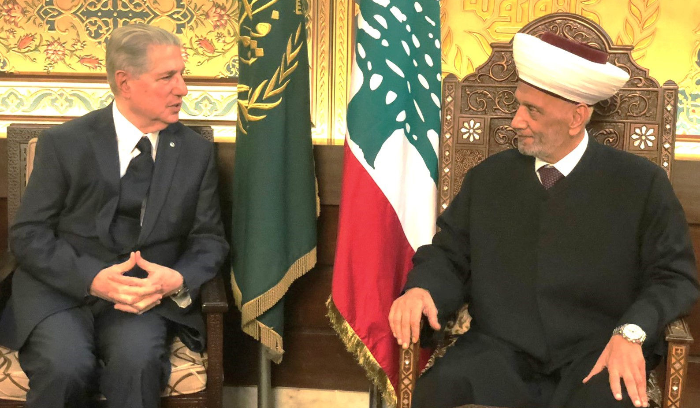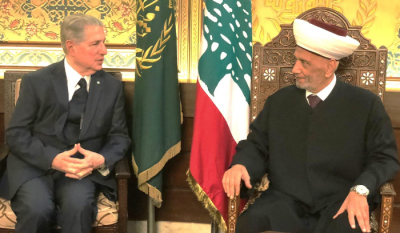President Amin Gemayel, after meeting with the Grand Mufti of the Republic, Sheikh Abdul Latif Deryan, in Dar al-Fatwa, noted that "the presidential vacuum is a crime against the homeland," emphasizing that Lebanon is currently adrift, lacking leadership and a sense of responsibility. He acknowledged the efforts of some institutions and Prime Minister Najib Mikati in managing existing affairs but asserted that a caretaker government cannot fully assume responsibilities or maintain credibility and effective communication with international institutions as long as it operates in a caretaker capacity. More is needed since we have not elected a president; the country is precariously balanced, and there is no authorized party that can restore Lebanon to the international arena.
He expressed the need for Arab nations to reconnect and encouraged dialogue with friendly countries and international organizations to address the absence of communication with foreign entities and the United Nations. Despite international resolutions favoring Lebanon, no one seems to be following up on them. Recent resolutions related to southern Lebanon and internal matters have been stalled, compounded by the Syrian refugee crisis, which exerts additional pressure on the country and creates widespread tragedy, as Lebanon's infrastructure cannot accommodate this new challenge.
He stressed the necessity of establishing a national body that brings together figures who can communicate with all parties and political factions without exception, engage with different segments of the Lebanese population, and maintain contact with Arab nations and friendly states. This could provide assistance to Lebanon and lift it from its current circumstances and the anxiety felt by its people. This unified national authority would serve as a guarantee for preserving the essence of Lebanese thought, questioning whether Lebanon can survive after this crisis on social, institutional, democratic, and economic fronts. Gemayel emphasized that the concept of Lebanon today hinges on the attachment to Lebanese thought, but this is insufficient without strong institutions and a viable foundation to rescue Lebanon from the quagmire it faces.
He called for the establishment of a unified national body consisting of all credible figures in the country who can sincerely work for Lebanon's benefit, not as a substitute for the government or the parliament but as a facilitator for creating the conditions necessary for electing a president, supporting the parliamentary council in its election efforts, and backing the caretaker government's actions.




